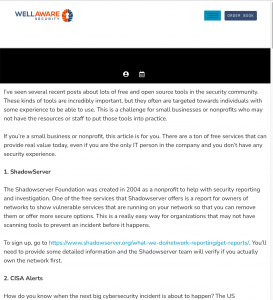Don’t let your Firewalls be STUN DDoS Reflector
Your firewalls can be used as a STUN DDoS reflector to attack others on the Internet. Open UDP firewall ports for STUN (Session Traversal Utilities for NAT) are being exploited for DDoS reflection. Your network is most likely one of those networks. Shadowserver now detects 101k IPv4 and 2.9K IPv6 accessible UDP STUN services. These can be abused for reflection/amplification DDoS attacks (IPv4 amp factor around 4, IPv6 amp factor around 6). Most open UDP STUN is in US and Germany. All of these can be STUN DDoS reflectors. You can stop this, keeping DDoS miscreants from using your network and firewall for criminal gain. Turning off UDP STUN or applying ACLs on the UDP STUN ports will prevent STUN DDoS reflector abuse. As described on Wikipedia, STUN is a standardized set of methods, including a network protocol, for traversal of network address translator (NAT) gateways in applications of real-time voice, video, messaging, and other interactive communications. Most firewall devices have the STUN UDP ports open.











